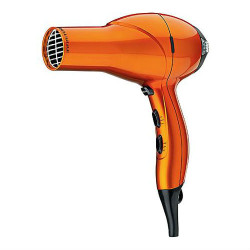Top Class Actions’s website and social media posts use affiliate links. If you make a purchase using such links, we may receive a commission, but it will not result in any additional charges to you. Please review our Affiliate Link Disclosure for more information.

Last November, Judge Roger T. Benitez certified a nationwide Class after finding the claims of lead plaintiff Cynthia L. Czuhaj included common questions that were appropriate for Class certification. Czuhaj alleged that the model 259 Infiniti Pro 1875 –watt hair dryer by Conair was riddled with cord and coil defects, causing the appliance to burst into flames.
In response to the Class certification, Conair argued for decertification, saying that there were substantial differences among strict liability laws in various states.
Judge Benitez noted that most states have a four-year statue of limitations in place from the date of the sale, but other states allow a longer time frame.
“Even though most states say that time begins to accrue on the date of sale, some states apply equitable estoppel,” said Judge Benitez. ”In order to protect class members’ interests in those states, the court would need to determine when each member discovered or should have discovered the breach.”
The consumers in the case argued that the Class should proceed in California and thus should be considered under California law. However, Judge Benitez said that it would be more appropriate to apply the laws in the state where the consumer purchased the hair dryer in order to protect consumers’ interest and also to balance the states’ laws on liability for the company.
“In light of the application of each state law to this case, more individualized questions arise,” Judge Benitez said in the ruling. “Where the class members purchased the Model 259, not where they reside matters. When they purchased it matters.”
The Class that was previously certified included consumers that bought a model 259 or model 279 Infiniti Pro hair dryer via a retailer through the present time and who brought forth claims of breach of implied warranty. Judge Benitez still allowed the Class to certify under Rule 23(b)(2) under the Federal Rules of Civil Procedure, which will allow consumers to still pursue claims for injunctive relief.
The ruling left other Classes intact including a California subclass that included claims of violations of California’s False Advertising Law, Consumer Legal Remedies Act and Song-Beverly Warranty Act. A New York subclass claiming violations of New York’s General Business law also remained intact.
Czuhaj originally filed the lawsuit against Conair in 2013 and filed an order seeking Class certification in September 2015, saying she bought the Conair Infiniti Pro hair dryer in October 2011 and used the product to dry her hair daily or every other day for ten months. In August 2012, Czuhaj claimed that the hair dryer emanated flames and she dropped the appliance on the floor.
The hair dryer then ignited the plaintiff’s carpet and left a permanent scorch mark, according to the complaint. The hair dryer kept running even though it was plugged into a ground fault circuit interrupter outlet and the appliance itself was equipped with an appliance leakage current interrupter, a feature meant to detect a change in electrical current and turn off the power as a safety precaution, the complaint said.
The plaintiffs are represented by Jerusalem F. Beligan of Bisnar & Chase, Jennifer Lynn Connor, Jeff Geraci, Isam C. Khoury and Michael D. Singer of Cohelan Khoury & Singer and Katherine J. Odenbreit of Hunt Ortmann Palffy Nieves Darling & Mah Inc.
The Conair Hair Dryer Class Action Lawsuit is Czuhaj v. Conair Corporation, et al., Case No. 3:13-cv-01901, in the U.S. District Court for the Southern District of California.
UPDATE: On July 18, 2016, plaintiffs fought back against a motion by Conair to further narrow the subclasses.
UPDATE 2: On Nov. 4, 2016, the parties in a class action lawsuit alleging defects in Conair hair dryers causes them to catch fire, proposed a $5.4 million settlement deal.
UPDATE 3: The Conair Infiniti Pro Hair Dry Class Action Settlement is now open! Click here to file a claim.
ATTORNEY ADVERTISING
Top Class Actions is a Proud Member of the American Bar Association
LEGAL INFORMATION IS NOT LEGAL ADVICE
Top Class Actions Legal Statement
©2008 – 2024 Top Class Actions® LLC
Various Trademarks held by their respective owners
This website is not intended for viewing or usage by European Union citizens.















6 thoughts onConair Class Action Gets Partial Decert. in Hair Dryer Lawsuit
UPDATE 3: The Conair Infiniti Pro Hair Dry Class Action Settlement is now open! Click here to file a claim.
UPDATE 2: On Nov. 4, 2016, the parties in a class action lawsuit alleging defects in Conair hair dryers causes them to catch fire, proposed a $5.4 million settlement deal.
UPDATE: On July 18, 2016, plaintiffs fought back against a motion by Conair to further narrow the subclasses.
How do we file a claim on this product! knowing its defective?
Did not work right so. Threw it away
Mine caught fire